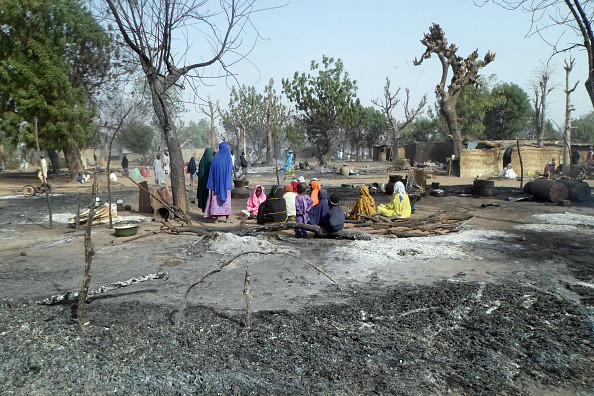Maiduguri bombers: Boko Haram-style attacks also happen in Europe, says Nigerian ministry

Nigerian defence officials have downplayed the latest suicide bombings in the country's northeast arguing that such attacks are common in many countries across the globe and not just in the West African nation. At least 22 people were killed and 18 injured when two female suicide bombers detonated explosives inside and outside a mosque in Maiduguri, capital of the restive Borno state, on Wednesday (16 March).
The attacks came days after Nigeria's president Muhammadu Buhari was accused of exaggerating military success in the fight against Boko Haram terrorists. The militants are suspected of being behind the blasts because of one of their tell-tale uses of civilians, especially women and girls, in suicide bombing missions.
Who are Nigeria's Boko Haram terrorists?
Boko Haram, which has renamed itself Iswap, fights against Western influence in Nigeria and aims to impose its version of Sharia law throughout occupied territories.
The group carries out attacks in Nigeria and neighbouring countries in a bid to take control of more territory. Three Nigerian states − Adamawa,Borno and Yobe − have been under a state of emergency since May 2013.
Boko Haram has killed 20,000 people since 2009 and was deemed the world's deadliest terror group, surpassing its ally, Islamic State (Isis), in November 2015.
Nigeria has become the third most terrorised country as a result of the group's violent insurgency.
Read more about Boko Haram
Brigadier General Rabe Abubakar, Nigeria's director of defence information, told IBTimes UK the "remnants of Boko Haram" could be behind the blasts, but added the fight against the terrorists is due to end soon.
"Boko Haram lacks freedom of action, movement and domination, and the only thing they can do is to continue with these unfortunate attacks on soft targets. They hit innocent human beings in a surprise manner, but it is just a matter of time and it will stop completely. These kind of things happen at international level, even in some European nations," he said.
Abubakar also called on Nigerian citizens to be more "proactive" and report any suspicious activity to the authorities. "Safety is not just the effort of security agencies and the military, it is a collective duty either locally and internationally," he said.
Buhari, who vowed that his administration would end Boko Haram, added: "This attack is yet another sign that Boko Haram is a mindless and godless group that in no way represents true Islam. I sympathize with all who lost family and loved ones in the attack, and with the government and people of Borno State.The Government remains resolute in its commitment to securing Nigeria from terrorism and violence."
Nigeria is currently leading a regional offensive – consisting of 8,700 troops from Nigeria, Niger, Chad, Cameroon and Benin – against the terrorists.
Nigeria up close: Check out our Flipboard magazine
© Copyright IBTimes 2025. All rights reserved.






















